PsychNewsDaily Publishers
100 Summit Drive
Burlington, MA, 01803
Telephone: (320) 349-2484
PsychNewsDaily Publishers
100 Summit Drive
Burlington, MA, 01803
Telephone: (320) 349-2484
The 1970s featured vibrant slang like "far out," "groovy," and "can you dig it," reflecting a carefree, playful communication style that enhances modern conversations.
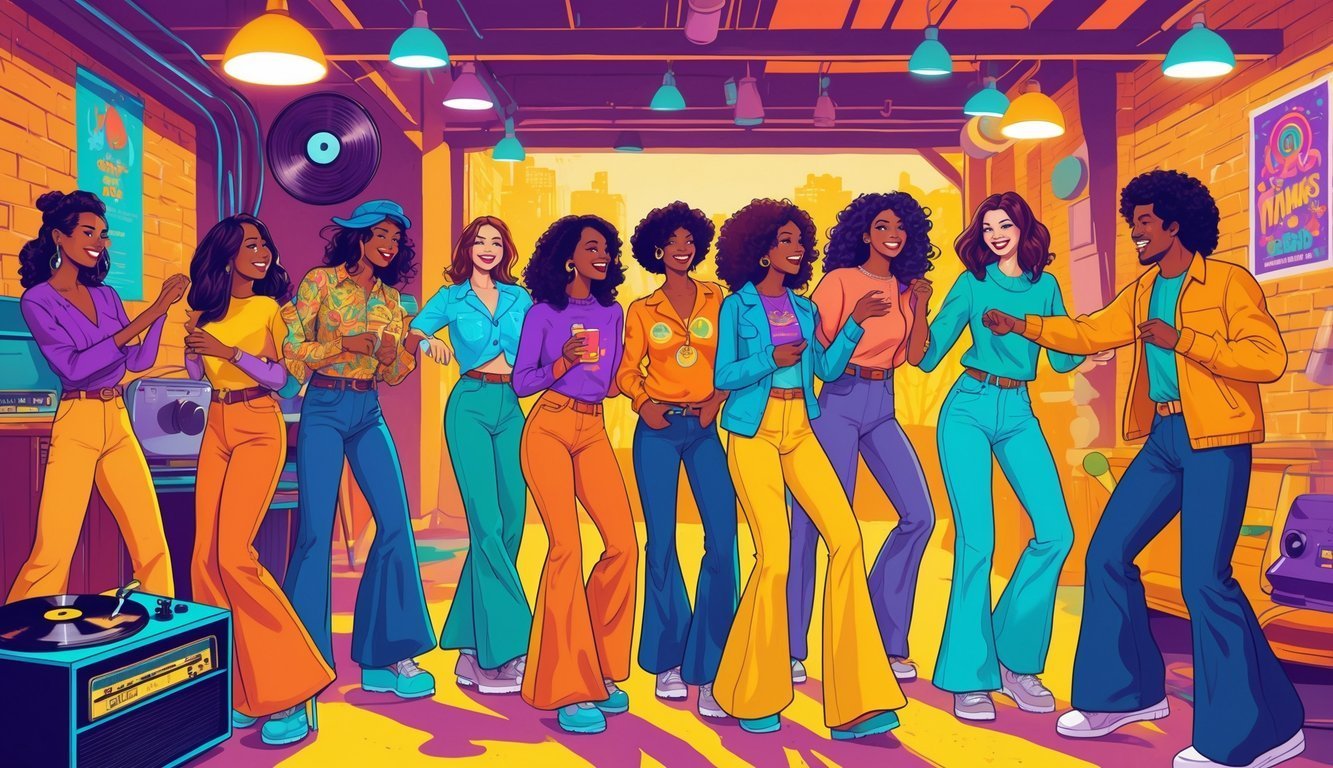
The 1970s brought a ton of unique style and personality, especially in the way people talked. Some phrases from back then might sound a little old-school now, but they’ve got a fun and carefree vibe that’s honestly hard not to love.
Try tossing some of these iconic 70s slang phrases into your conversations—they add a playful, fresh twist. They help you express yourself simply but with a lot of character.
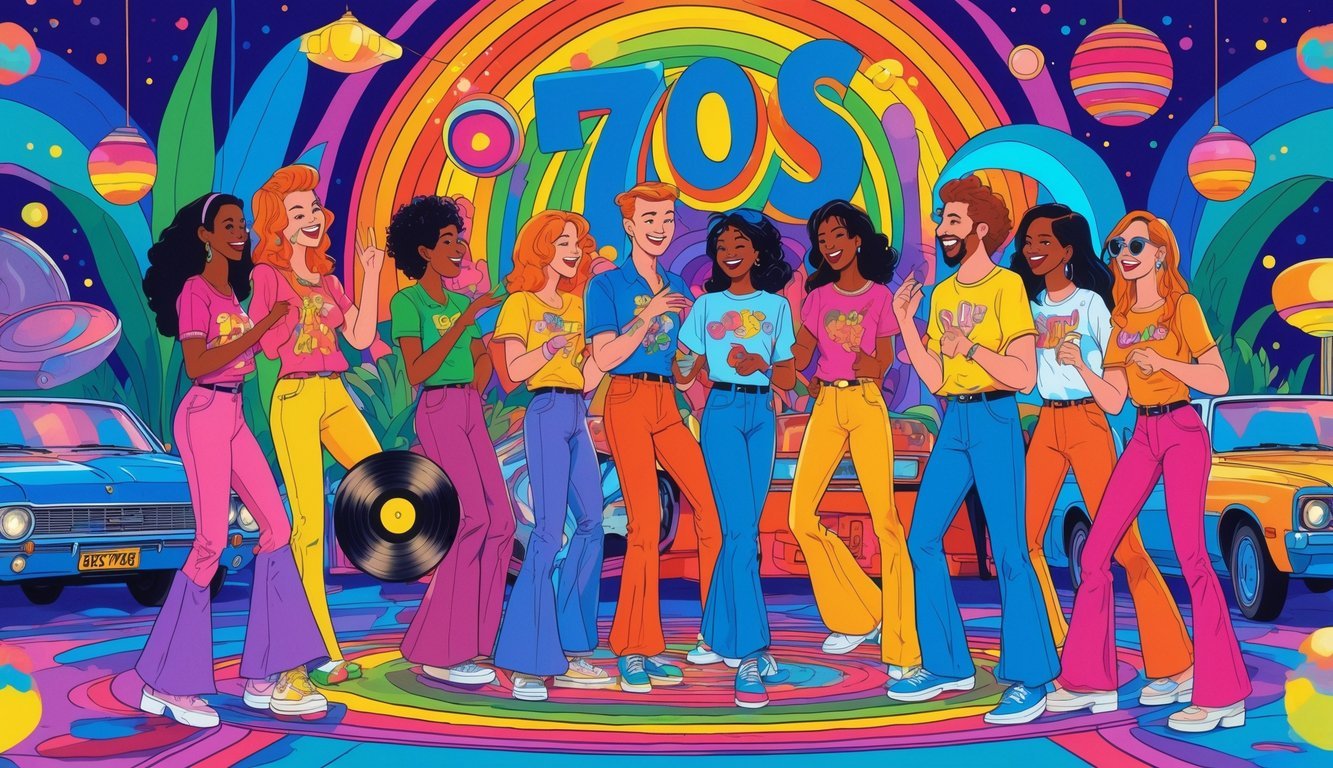
When something’s really cool or totally amazing, just say, “Far out.” You show you’re impressed or surprised.
Maybe your friend tells a wild story or you spot something super colorful and unusual—just toss out a “Far out!” It’s a quick way to say, “Wow, that’s awesome!”
Using “Far out” brings a relaxed, friendly energy to your talk. It’s a fun phrase that just feels positive and chill.
Try slipping it into your chats to give a nod to that old-school cool. It keeps things light and groovy without sounding too dated.
The phrase is easy to get, and honestly, it could brighten up how you show excitement. For more 70s slang, check out these cool phrases that defined the decade.
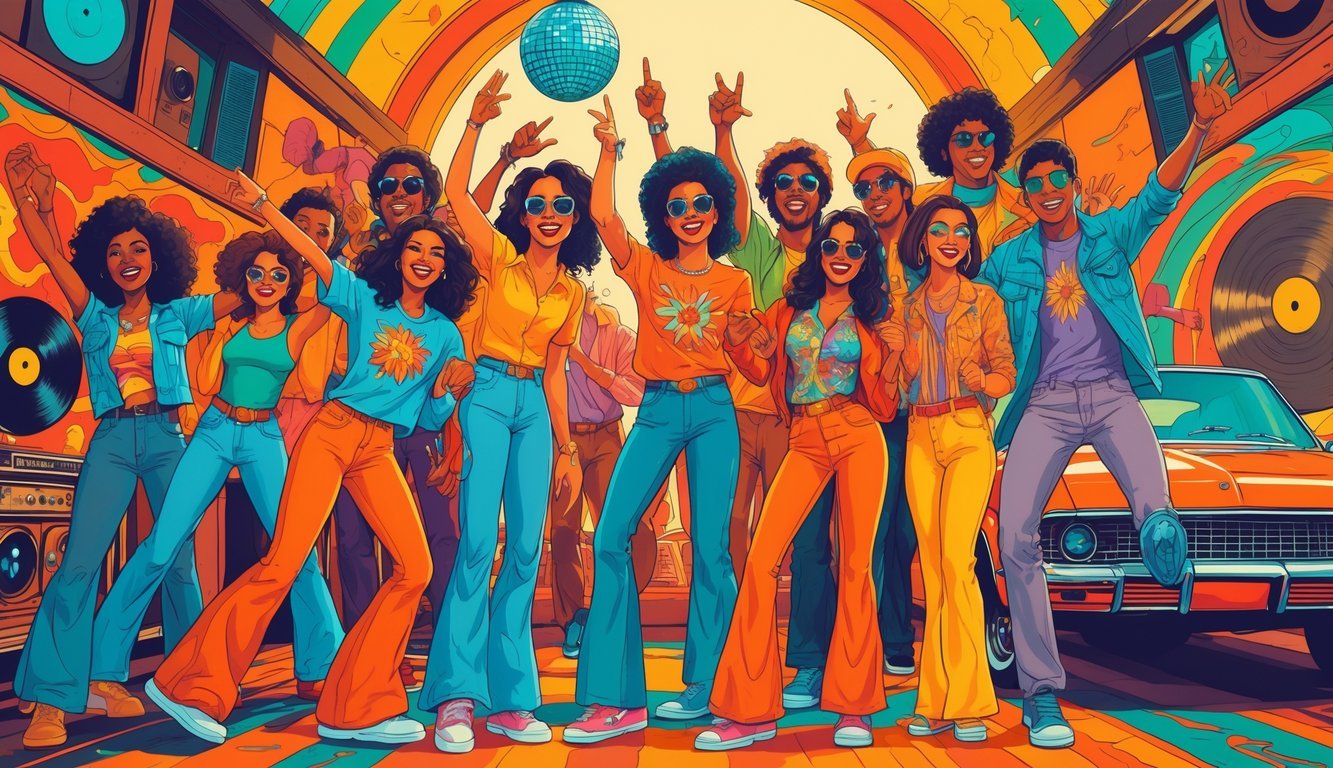
“Groovy” just screams cool, fun, and exciting. Back in the ’70s, people used it to say something was great or impressive.
You can use it whenever you want to show you like something. If your friend mentions a new movie, just say, “That sounds groovy!”
It’s a word that adds a happy, upbeat vibe to your conversation.
Bringing “groovy” back makes your talks feel more playful. It’s easy to remember and honestly, kind of fun to say.
Using “groovy” lets you sprinkle a little ’70s style into daily life. Give it a go and see what people think!
Want more? Here’s a 1970s slang list.
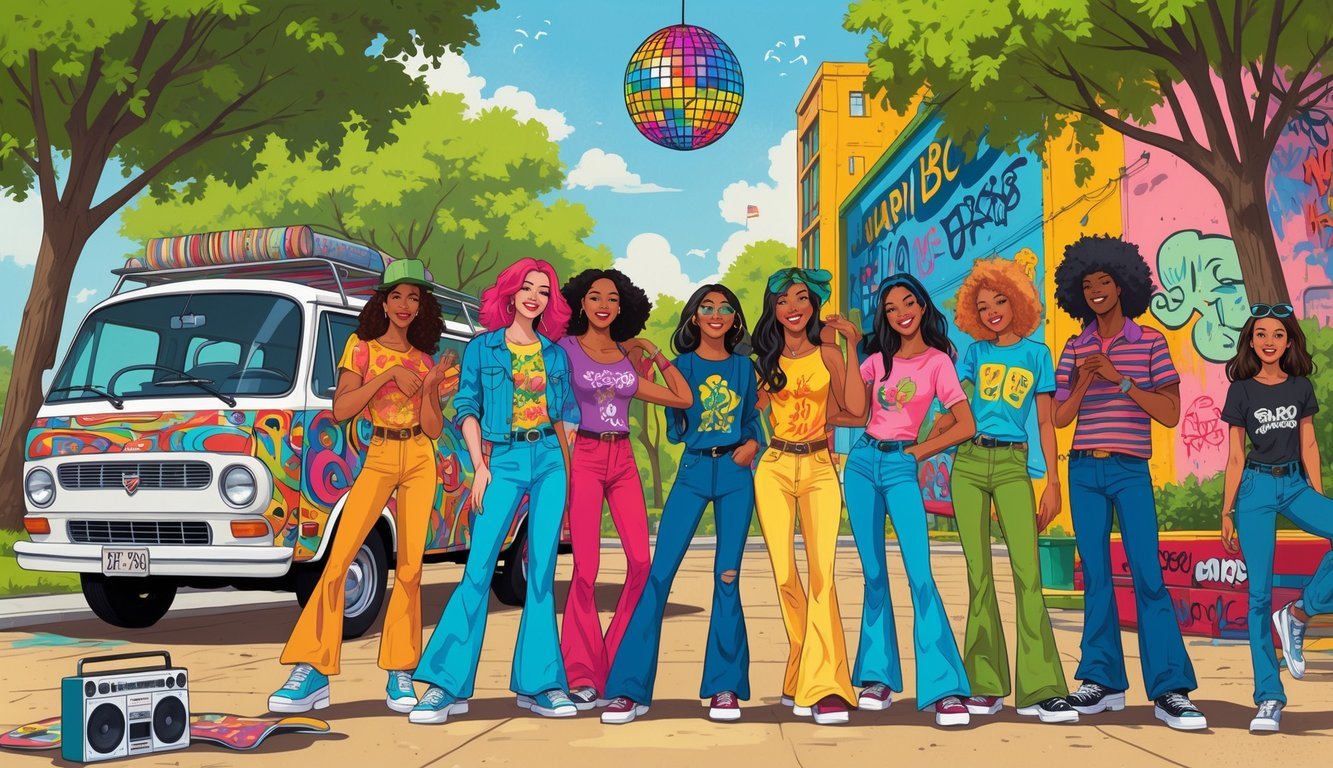
You’ve probably heard “Right on.” People in the 70s used it to show agreement or support. Saying “Right on” feels positive and cool.
It’s simple and honest. When someone shares a good idea or something you like, just say “Right on” to show you’re with them.
Bringing “Right on” back gives your conversations a little friendly boost. It’s a nice way to keep things upbeat and encouraging. Try it out and see if it fits your style.
This phrase still carries a subtle optimism that can really brighten a chat.
When you say “Can you dig it?” you’re just checking if someone understands or agrees. It was a classic way to see if everyone was on the same page.
People used it all the time in casual chats or at parties. It made conversations feel cooler and more laid-back.
Drop it into your chats now and you’ll add a fun, retro vibe. Next time you want to make sure someone gets your point, just ask, “Can you dig it?” Who knows, maybe it’ll catch on again.
If you’re curious about more phrases like this, check out this cool 1970s slang guide.
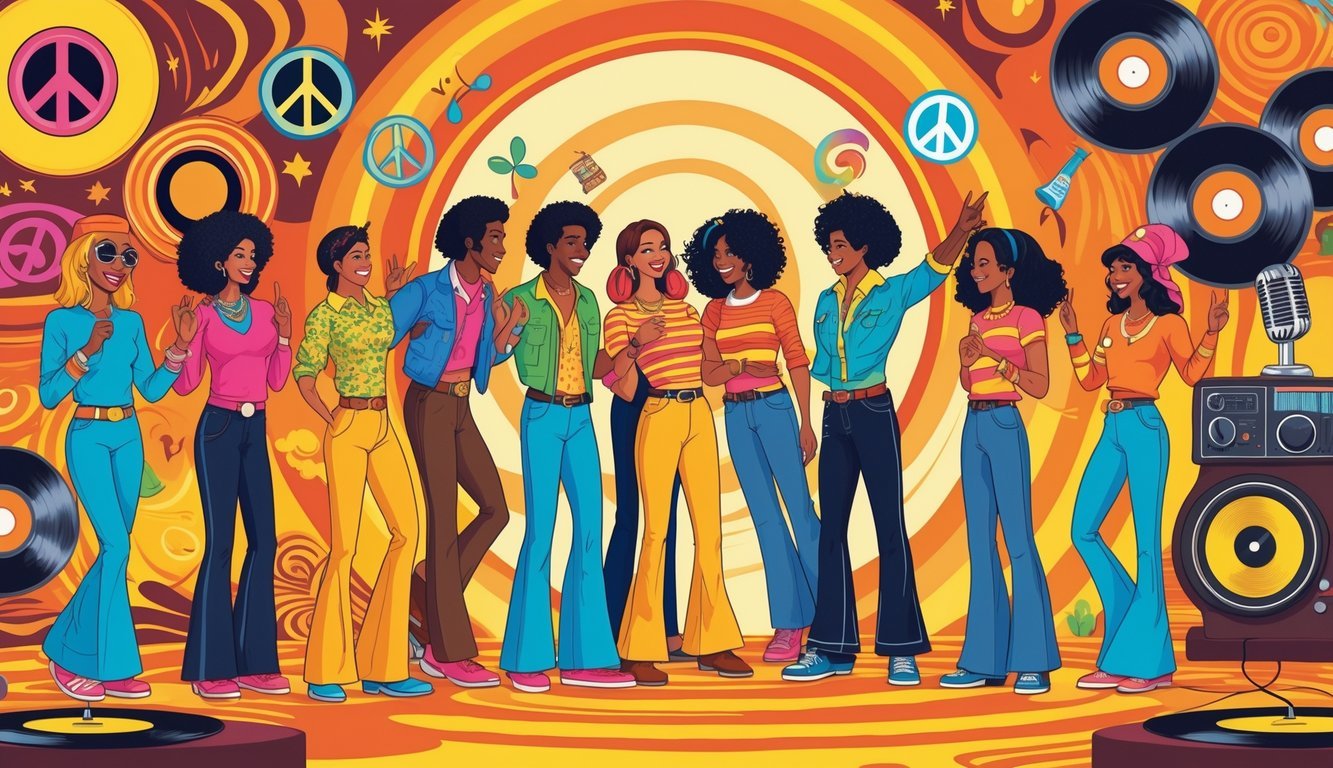
When you hear “boogie,” you probably think of dancing. In the ’70s, “boogie” meant to dance in a fun, free way.
It wasn’t just about moving your feet—it was about feeling the music and letting loose.
You could tell your friends to “boogie down” when it was time to hit the dance floor. The word brought a happy, easygoing vibe that matched the disco era.
Use “boogie” today to add a cool, retro touch to your conversations. It’s a simple way to invite someone to have fun or just enjoy yourself, like people did back then.
Bringing back “boogie” keeps that carefree energy alive.
Want more? Check out these 70s slang words and sayings.
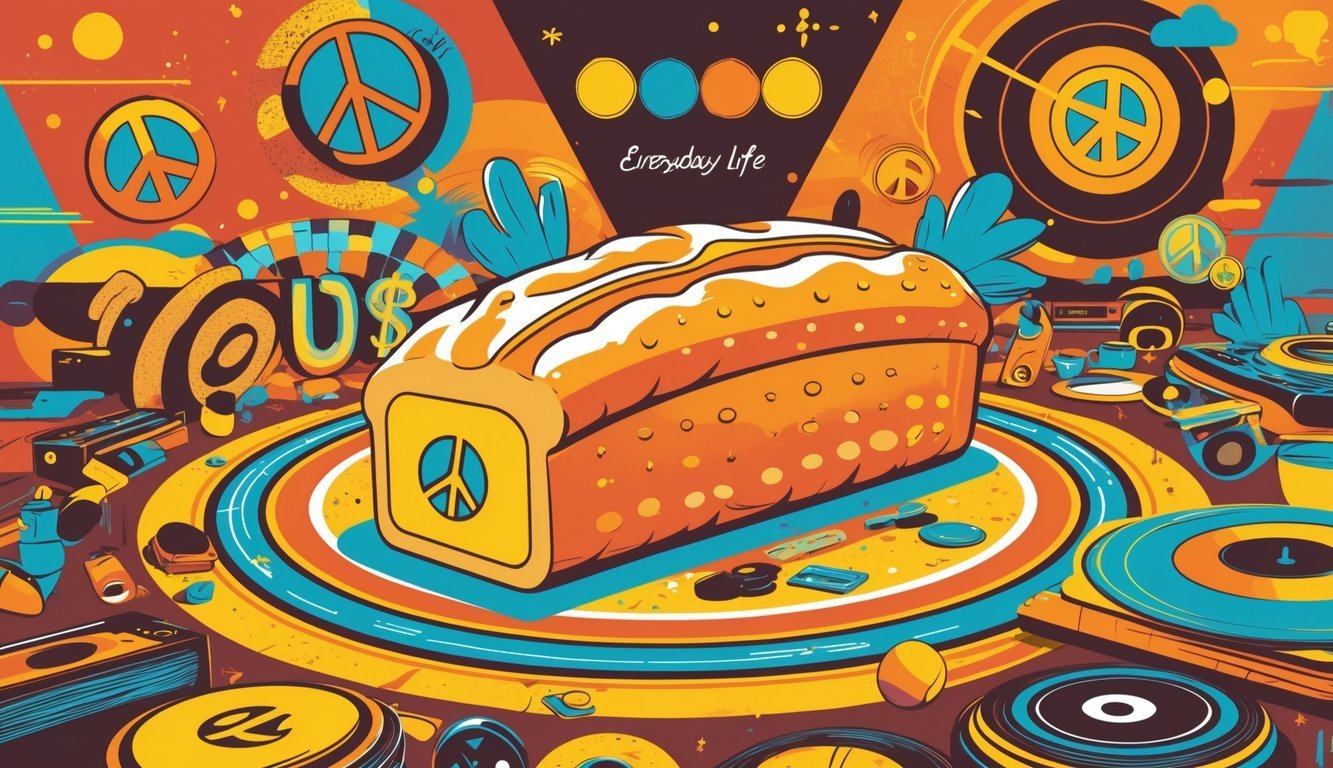
When you hear “bread” in 70s slang, you know it means money. It’s a simple, chill way to talk about cash.
The word probably comes from “breadwinner,” the person who earns money for their family. Bread is a basic staple, just like money.
Using “bread” for money feels cool and casual. If you want to sound a little groovy, just say you’re trying to make some bread.
It’s a fun way to keep that 70s vibe alive in your everyday talk.
Learn more about this and other slang from the 70s at 70s Slang Words and Sayings: Guide to Groovy Phrases.
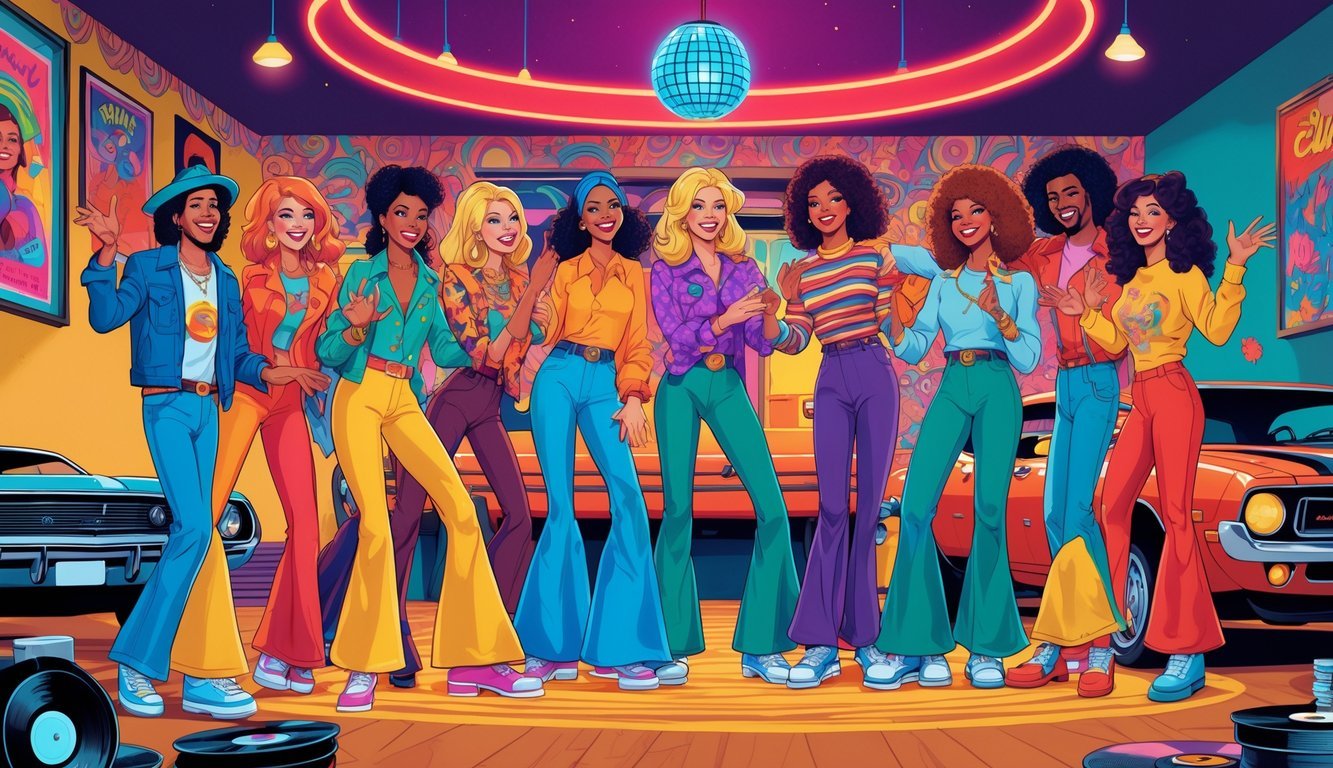
If you want to compliment someone’s looks or style, “foxy” is the word. It means attractive and cool, with a little extra charm.
Say, “That outfit is so foxy!” to show you dig their vibe. It’s a fun way to boost someone’s confidence without sounding too formal.
Using “foxy” adds some 70s flair to your chats. It’s simple, catchy, and full of friendly energy.
Try it next time you want to make someone smile. Bringing back “foxy” adds a playful touch to everyday talk.
It’s a neat way to connect with others and show you appreciate their style. You might start saying it more than you expect!
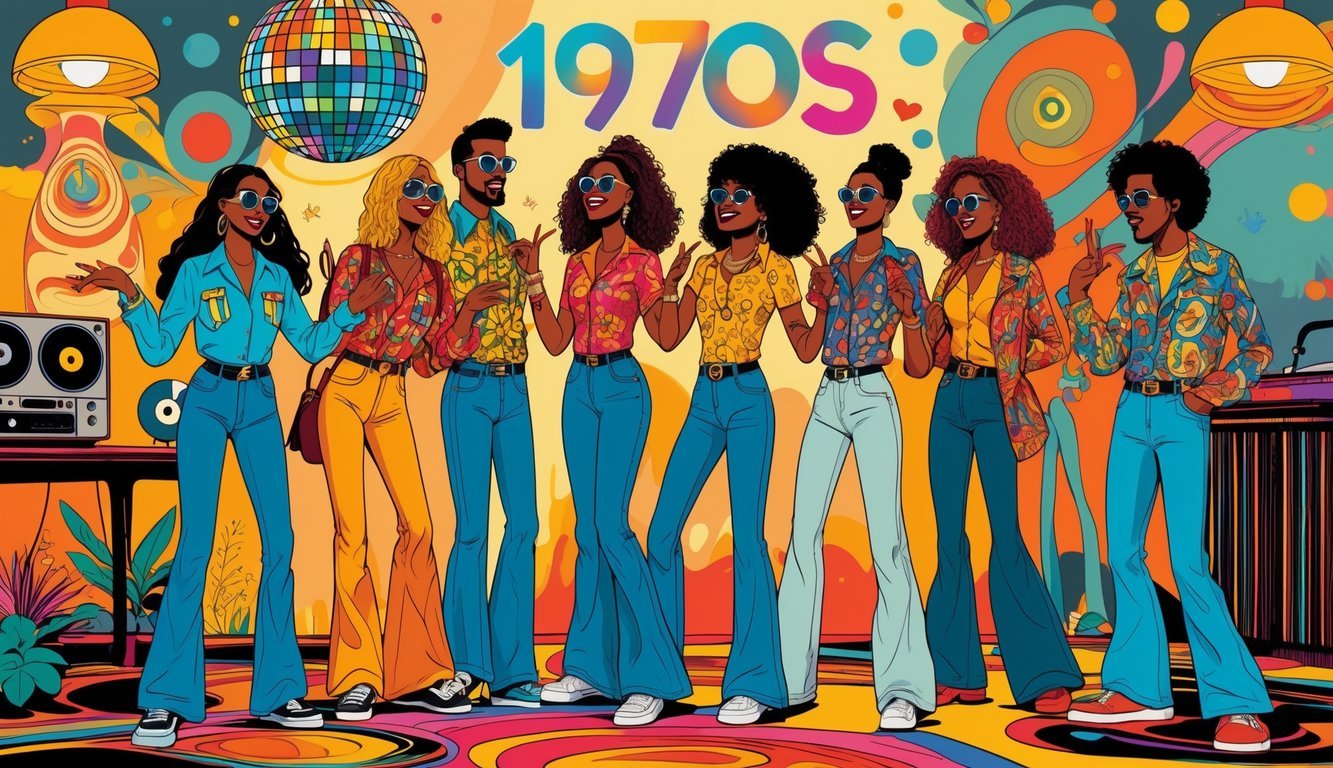
When you hear “outta sight,” you know something’s really cool or impressive. Use it when you see a great movie or something that surprises you in a good way.
It’s a simple way to show excitement without the usual “awesome” or “amazing.”
Using “outta sight” adds a fun, retro vibe to your chats. Your praise feels more playful and relaxed.
Next time something catches your eye, tell your friends it’s “outta sight.” You’ll bring some ’70s charm back into your talk.
This phrase is easy to remember and fits lots of situations where you want to share your good mood.
Check out more classic terms in this list of 70s slang.
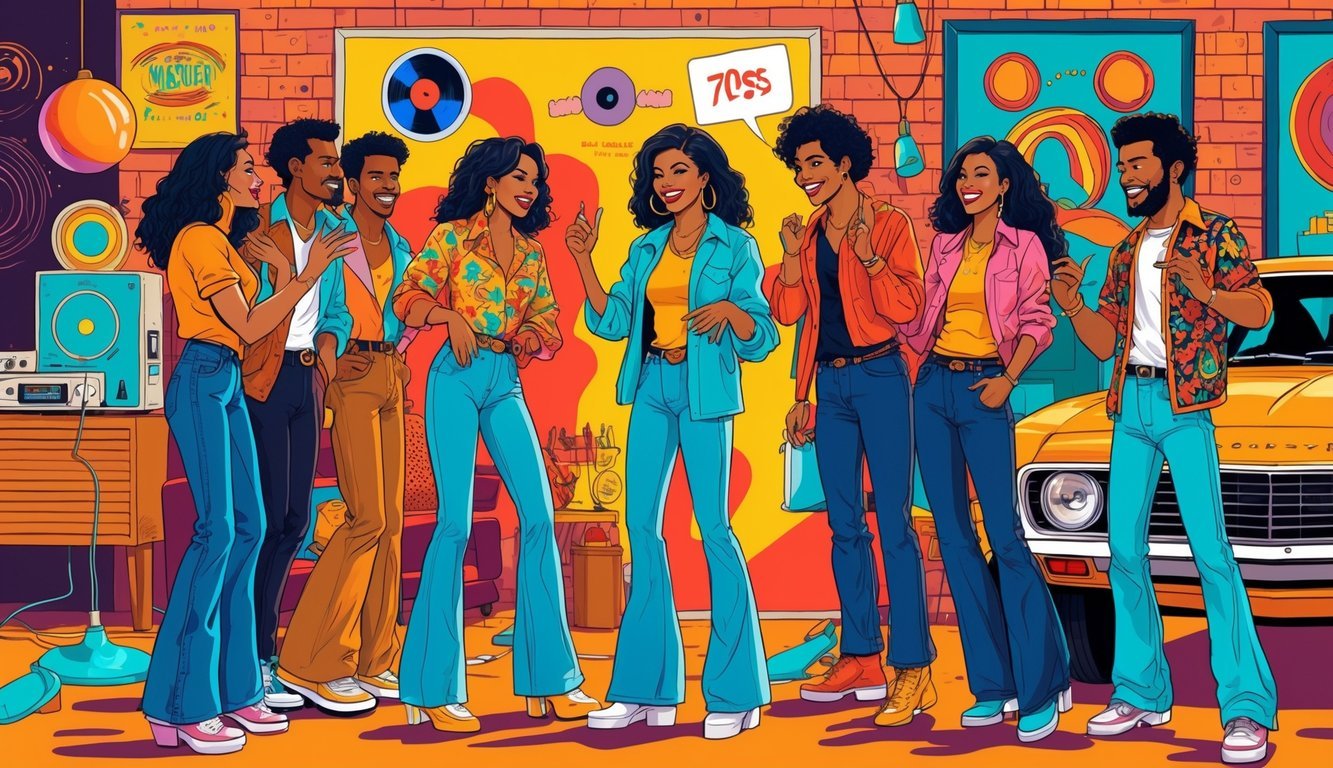
When you say “Peace out,” you’re signing off with a cool, calm vibe. It’s a friendly way to say goodbye and wish someone peace.
People started using this phrase in the 70s during the peace movement. Using it today shows you value kindness and calm when you say goodbye.
Say “Peace out” to friends after a chat or at the end of a hangout. It’s simple, positive, and still feels pretty casual.
Bringing back “Peace out” adds some of that easygoing 70s spirit to your conversations. It reminds everyone to leave things on a good note.
Try it next time you want to say goodbye with a little extra peace and goodwill. It fits right into today’s laid-back style.
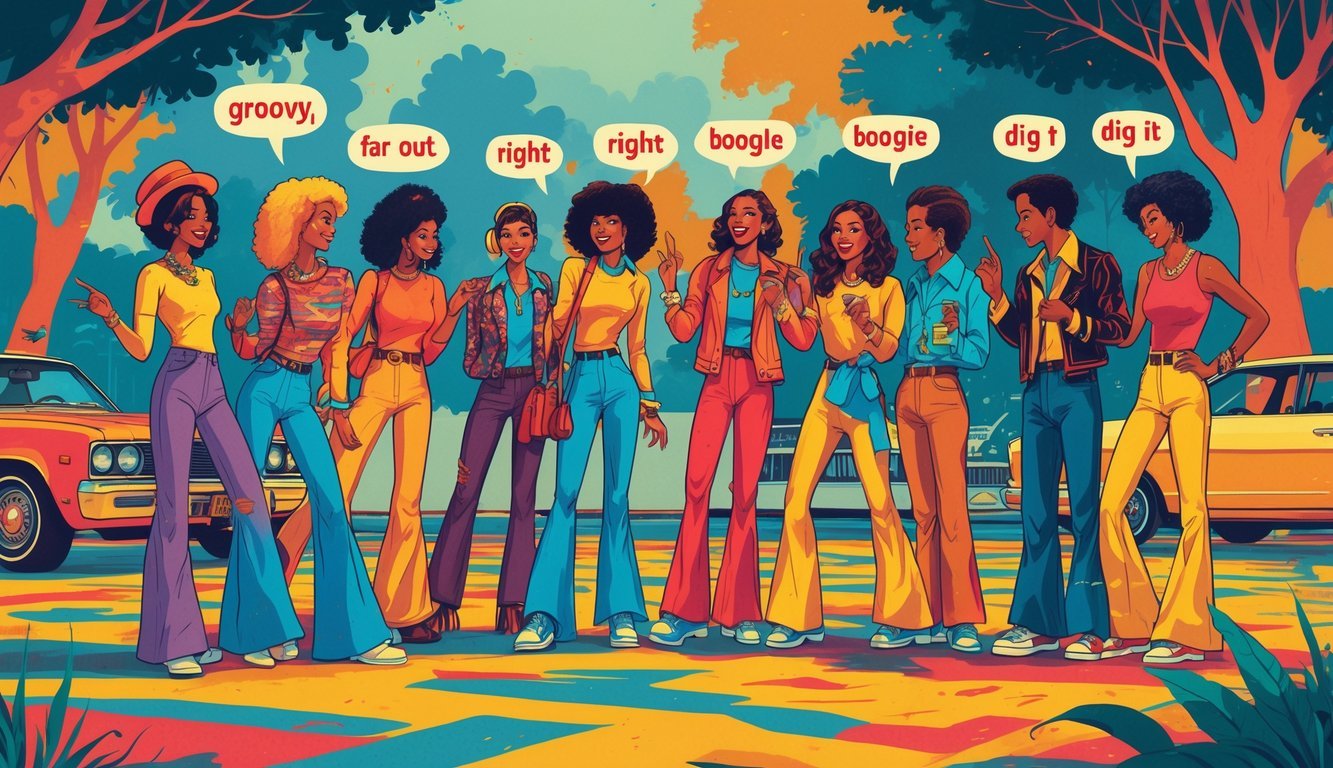
When you want to relax and take it easy, say “kick back.” It means to chill out and enjoy some downtime without stress.
Use it after a long day or when you’re just hanging out. For example, “Let’s kick back and watch some TV.”
Saying “kick back” brings a laid-back vibe to any conversation. It’s a fun way to remind yourself to slow down and enjoy the moment.
This cool 70s slang totally deserves a comeback. For more fun phrases, check out 70s slang words and sayings.
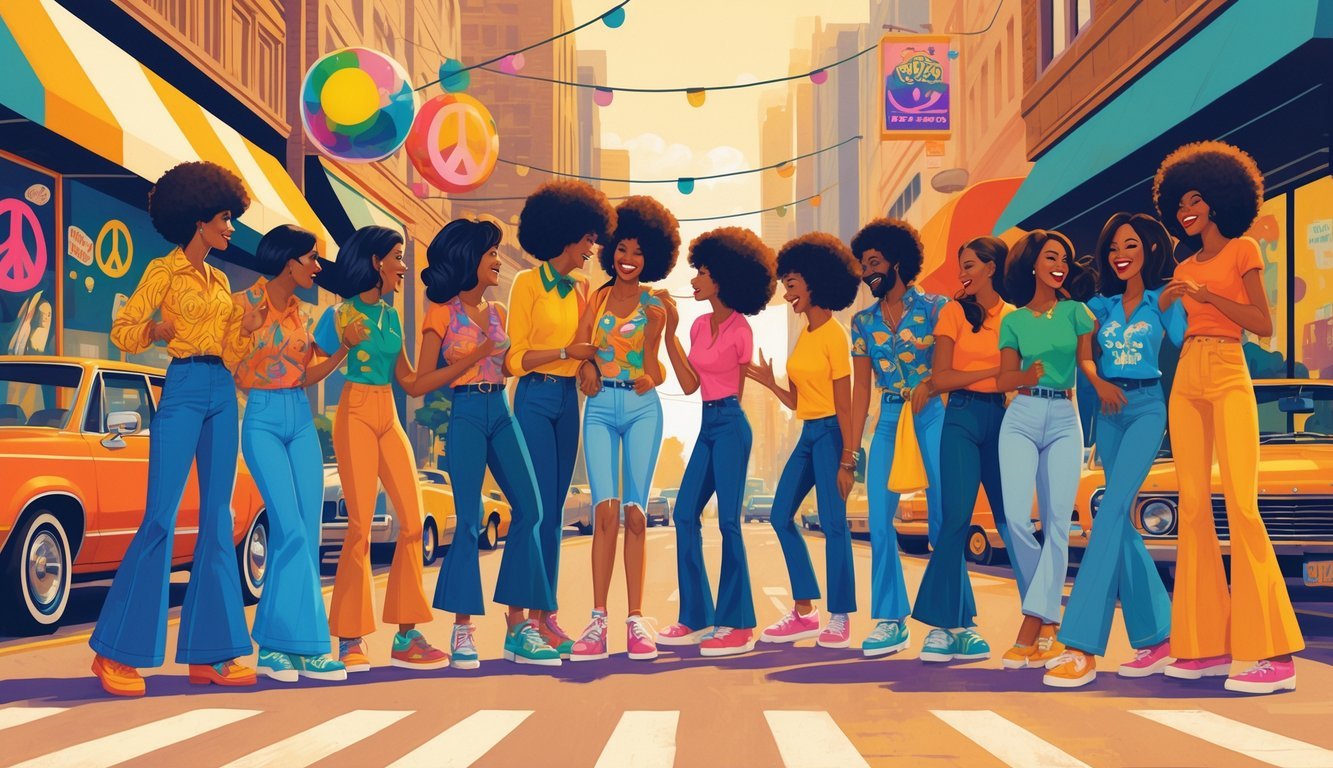
Slang from the 1970s did more than just add color to conversations. It helped people connect, showed who they were, and echoed the biggest trends of the time.
When you understand how these phrases worked, you see why bringing some of them back could be cool.
Slang works like a secret code between people your age. In the 70s, young people used it to stand out from older generations.
Saying things like “groovy” or “outta sight” instantly showed you belonged to the same crowd.
It also helped define your identity. Using certain words showed your mood, your style, or even your values.
Because slang changes fast, it marks a specific time in your life.
Using 70s slang today could help you tap into that easygoing, fun vibe. Plus, it’s a way to connect with people who love retro culture or want to try something new in how they speak.
Back in the 1970s, slang really soaked up the vibe from music, movies, and daily life. Take “copacetic”—it just oozes that laid-back disco and funk energy.
People tossed around words like “bitchen” thanks to the playful, rebellious streak running through teen movies and TV shows.
Slang didn’t just describe what was cool; it actually became part of the scene. When you say something like “can you dig it?” you’re channeling the spirit of 70s pop culture—cool, free, maybe a little bold.
This tight connection to pop culture made 70s slang buzz with energy. Using these phrases today? You get to keep that retro vibe alive, even if you’re nowhere near a disco ball.
Honestly, it’s a fun way to add a little vintage cool to your daily talk.
Want to dive deeper? Here’s a comprehensive list at WikiHow.
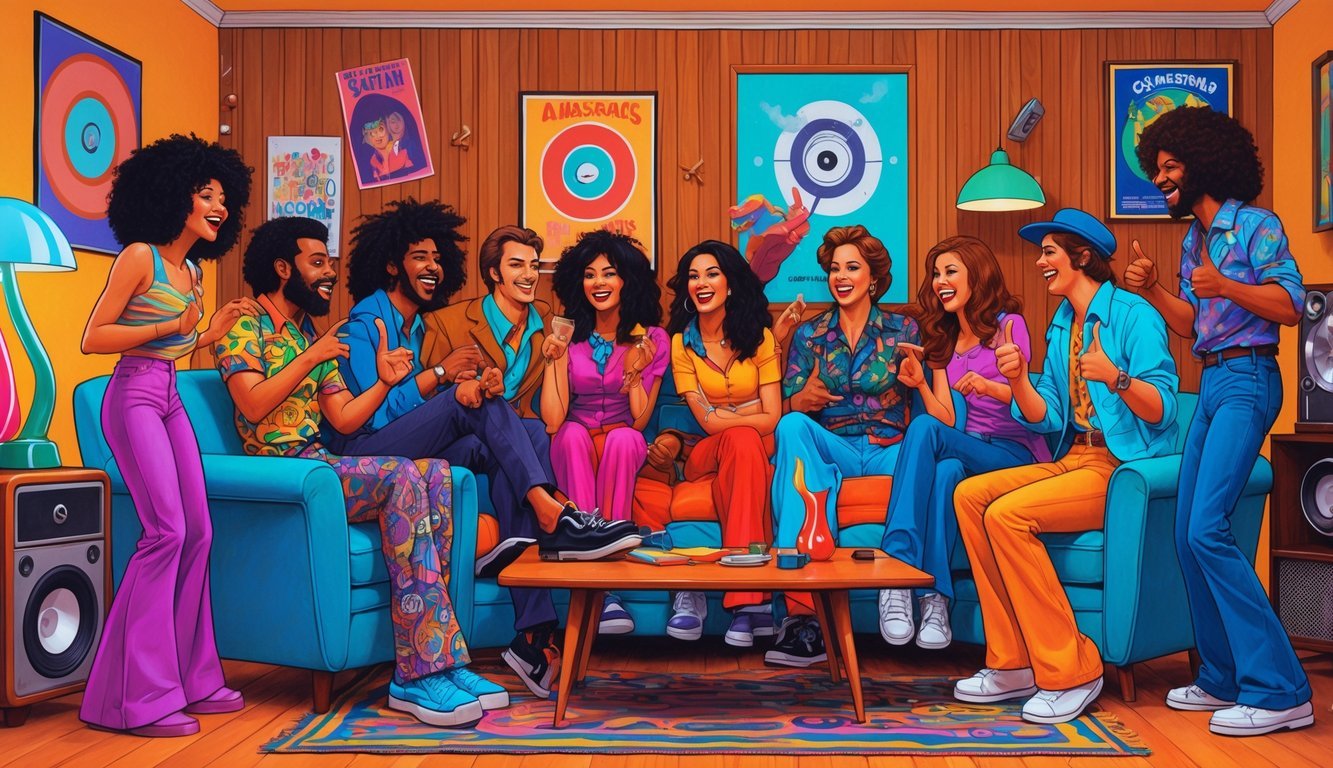
Throwing some 70s slang into your conversation can be a blast. You just have to pick your moments and not force it.
Honestly, being clear helps you sound cool instead of confusing everyone.
Start simple: pick a couple of words that feel like you. Groovy, far out, or copacetic all slide easily into casual chats.
Try tossing them in here and there, not all at once. It’s more like seasoning than the main dish.
Mix 70s slang with today’s language. You might say, “That movie was totally groovy, dude.” It feels fresh, not forced.
If you’ve got friends who are into the vibe, practice with them. They’ll let you know when it works.
Or just binge a few 70s shows or movies. You’ll pick up the slang in no time.
Some 70s slang can really throw people off if they haven’t heard it before. You might want to explain what you mean, or just toss in a simpler word right after the slang.
Take stone fox, for instance. That just means someone’s attractive, so you could say, “She’s a stone fox—or, you know, really good-looking.”
Try not to drop slang into formal situations. Save stuff like dig it or right on for when you’re just hanging out. Otherwise, you might end up sounding a bit odd.
Not everyone’s up on 70s lingo, after all. Watch how people react. If they look puzzled, just switch back to regular words.